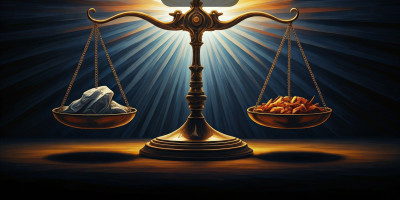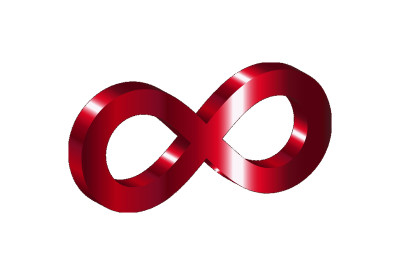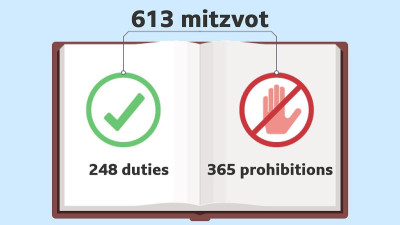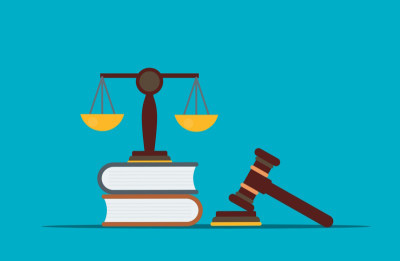






On Rosh Hashanah, Hashem, the ultimate Judge, sits on the Throne of Judgment, reviewing three books: one for the absolutely evil, one for the absolutely righteous, and one for those whose deeds balance between good and evil. Humanity's actions throughout the year determine their inscription in one of these books, sealing their fate for the coming year.
However, Hashem's infinite kindness and mercy provide an opportunity for teshuvah and change. The 10 days between Rosh Hashanah and Yom Kippur serve as a period of introspection, prayer, and character improvement, allowing individuals to alter their decree. The Zohar emphasizes that changing one's path during this time is relatively easier compared to after Yom Kippur.
The judgment process unfolds in stages. On Yom Kippur, the final judgment is sealed (first seal) through the neilah prayer. Yet, Hashem's mercy extends beyond this point. The second seal occurs on Hoshana Rabah, the seventh day of Sukkot. Even after the second seal, Hashem's compassion permits further appeal until Shemini Atzeret. During mussaf prayers, the verdict is handed to Heavenly officers for execution. Until then, sincere teshuvah, mitzvot, chesed, and heartfelt prayers can still alter the sentence.
During the heavenly judgment, a fundamental question emerges regarding the interplay between mitzvot (meritorious deeds) and averot (transgressions): Do mitzvot have the power to cancel out, erase, or atone for past averot? Specifically: Consider a scenario where an individual has accumulated:
- 100 mitzvot (good deeds, such as acts of kindness, prayer, and tzeddakah)
- 50 averot (bad deeds, such as harmful words or sinful behavior)
The question arises: How does the heavenly court evaluate this individual’s record? Does the heavenly court offset the 50 averot against the 100 mitzvot, resulting in a net balance of 50 mitzvot? Or, does the heavenly court hold the individual accountable for each averot separately, regardless of the number of mitzvot performed? Meaning that every sin and every mitzvah is evaluated independently, without automatic cancellation or mitigation.
- During One's Lifetime
The Gemara (Pesachim 118a) relates that Rav Chasda explained the pasuk "Hodu la'Shem Ki Tov Ki Leolam Hasdo" ("Give thanks to Hashem for He is good, His kindness endures forever") that we thank Hashem's "kindness," which lies in accepting the "payment" of our debts of sins by withholding the blessings and abundance He had bestowed upon us. By accepting this substitution, Hashem allows individuals to offset their spiritual debts through temporary earthly struggles rather than facing more severe eternal consequences. Moreover, Hashem, in His infinite goodness, accepts this alternative payment – withdrawing blessings and abundance from our lives.
The Ben Ish Chai explains that Hashem's kindness (“hasdo") is demonstrated by withholding physical punishment, instead exacting payment through financial or material losses. (Sefer Benayahu). Moreover, since Hashem Himself collects this "payment," it constitutes the greatest kindness (Sefer Ben Yohoyada).
The Gemara in Shabbat (70a) reinforces this concept. The Torah's phrase "mechalaleha mot yumat" ("Desecration of Shabbat is punishable by death") is interpreted by the Gemara as referring to financial loss ("mot yumat" = monetary death). This understanding is supported by Nedarim (64b), which equates poverty with death. This teaches us that the heavenly court offsets transgressions (averot) with spiritual bounty, which can encompass:
- Emotional well-being
- Emotional serenity, tranquility, and peace of mind
- Physical health
- Domestic harmony (shalom bayit)
- Money (parnassah)
In other words, the heavenly court accepts the withdrawal of spiritual blessings as a form of atonement for sins, illustrating the interconnectedness of material and spiritual well-being.
This is why some can lose their assets in this world. Out of boundless compassion, Hashem grants opportunities for teshuvah. Embracing this opportunity, we should earnestly seek forgiveness for past mistakes.
(B) According to the Zohar (Nasso 123b), when an individual sins, the surrounding holy light and protection are withdrawn, creating a spiritual vacuum. This absence of light invites the forces of darkness (sitra achara) to descend upon the person, seeking to harm and afflict them through various forms of suffering, such as financial struggles or health issues. However, if the individual has accumulated merit through their mitzvot (good deeds), this spiritual "currency" can be exchanged to nullify the impending suffering . This exchange occurs without our knowledge, shielding us from potential hardships.
Sin's impact on the soul is devastating, tarnishing its purity and distancing it from Hashem's divine presence. Furthermore, any prosperity and blessings sent from Heaven are diverted to the dark side, fueling malevolent forces. Yet, the Zohar reassures us that teshuvah possesses the transformative power to halt the destructive cycle of sin, restore heavenly blessings, and refine the soul, enabling it to receive divine bounty.
Hashem's mercy provides opportunities for repentance, allowing us to start anew with a clean slate. Through mitzvot observance, the soul is refined, and its connection with Hashem is strengthened.
Rav Meir Eliyahu notes2 that the severity of these consequences depends on:
- The individual's spiritual standing and proximity to Hashem.
- The soul's origin, as certain souls may incur greater damage from a single sin.
- The generation in which one lives.
To clarify, the preceding analysis applies to the judgment we face during our earthly existence, rather than the reckoning that occurs after our passing. These two sources clearly indicate that Hashem withholds physical abundance as a consequence of sin. As we approach the new year, many of these judgments will be decreed. However, genuine teshuva on Yom Kippur can secure a favorable verdict and ensure a positive inscription.
- The World to Come
We established that judgment in this world involves an exchange of transgressions for mitzvot. However, opinions among the sages diverge regarding the nature of reward and punishment in the World to Come.
(A) Rav Yehuda Hechasid3 and Rav Nissim Gaon4 (quoted by Harav Chida), posited a profound idea: in the World to Come, individuals can exchange their accumulated mitzvot (meritorious deeds) for forgiveness of sins. This suggests that the value accrued through mitzvot can be used to offset the consequences of sin.5
(B) However, a different perspective is offered by the esteemed Rambam in his correspondence to the people of Yemen, where he asserts that:
…punishment for the violation of each and every positive or negative precept. Let no man conclude that he may freely disregard the less important mitzvot without liability to penalty because he has committed under duress some major sins. For Yeravam, son of Nevat, may his bones be ground to dust, was chastised not only for the sin of worshipping the [golden] calves and inciting [10 tribes of] Israel to do the same, but also for his failure to construct a Sukkah on Sukkot. This is one of the fundamental principles of our religion. Understand it aright, teach it, and apply the principle widely.
The Vilna Gaon shared a poignant insight with his students, illustrating the concept of divine accountability. Upon encountering a drunken Jewish man outside a tavern, he remarked, "This individual will face judgment not only for his sinful actions but also for failing to realize his full potential in Torah study.” When questioned about this statement, the Vilna Gaon explained, "There are two aspects of divine reckoning: Din and Cheshbon.
- Din (judgment) refers to accountability for one's actions, where an individual is held responsible for their sins.
- Cheshbon (accounting) represents a deeper level of reckoning, where one must explain why they failed to maximize their inherent potential and fulfill their spiritual purpose."
The Rambam argues and writes that in the World to Come each act is rewarded or punished independently as it is the natural consequence of one's actions. The mitzvot don’t wipe away averot. See also his commentary on the Mishna Avot (4:22) where he writes:
He not take the good [deeds] as a bribe. Such that if a man did a thousand good [deeds] and one evil, Hashem, may He be blessed, will not forgive the one sin for the multitude of his good [deeds] and remove one or more goods from his thousand goods. Rather, He will punish for that one evil and reward him for all of those goods.
The Rambam's stance on divine justice differs significantly from Rav Yehuda Hechasid and Rav Nissim Gaon, as he asserts that sins and mitzvot are not interchangeable or cancel each other out.
Rav Shalom Buzaglo6 notes that the exchange of mitzvot for sins occurs exclusively in this world, not in the World to Come. He emphasizes Hashem's kindness in this world, where punishment for sin often takes the form of material loss, sparing the individual greater spiritual consequences.
Rav Chaim Vital (Shaar HaGilgulim ch. 4 page 7a) also rules like the Rambam and not like Rav Yehuda Hechasid. He writes:
The Holy One, blessed is He, is Omniscient and knows that if an evil person reincarnates he will only add to his sins and the abundance of his transgressions will outweigh his merits. Since it is known that he has already completed the few mitzvot that are absolutely vital to the root of his Nefesh, it is better for him to be removed from the world. G‑d removes him from the world, and lowers him into Gehinom to cleanse his sins, while the merit of his mitzvot remains intact. "G‑d desires kindness!
Rav Yehuda Fetaya's in Minchat Yehuda (Chapter 88) reveals a profound truth about spiritual accountability. Despite the mitzvot and charitable acts of individuals, they are not immune to the consequences of their unatoned sins. This concept is poignantly illustrated through the remarkable story of Benjamin Arsuli, a wealthy philanthropist from Basra.
Benjamin Arsuli's exceptional kindness, generosity, and commitment to charity were renowned throughout Basra and Baghdad. His heirs continued his legacy, performing extensive charitable acts and studying for leillui nishmat of his soul. Yet, surprisingly, he was reincarnated as an evil spirit, entering the body of Tzion Cohen and causing seizures.
When confronted by Rav Fetaya, the spirit defended its righteousness, citing its numerous commandments and philanthropic endeavors. However, Rav Fetaya astutely asked, "If you are not wicked, then who brought you to this state?" The spirit acknowledged its reincarnation was due to a minor sin, underscoring that even seemingly trivial transgressions have consequences.
This account demonstrates that mitzvot alone cannot offset unatoned sins. Spiritual accountability demands that individuals reckon with their transgressions before receiving reward for their righteous actions. The Holy One, blessed be He, does not engage in a spiritual barter, exchanging mitzvot for sins. With all mitzvot exchanged for sins, the person would be left spiritually bankrupt, devoid of merit. Like a traveler stripped of garments, they would roam the earth, alone and without direction, having exhausted their spiritual resources.
The Midrash Tehillim (62:13) echoes this sentiment, stating that Hashem does not exchange transgressions for commandments. Instead, a person must first atone for their sins before receiving rewards for their good deeds. Fulfilling commandments after death cannot save a person from the consequences of their transgressions. Only teshuvah and desisting from sin during one's lifetime can truly lead to salvation.
III. Balei Mussar
The Mesilat Yesharim (Chapter 4) emphasizes the rigorous nature of judgment in the World to Come. This divine reckoning scrutinizes every aspect of each action, considering all relevant factors. Each deed will be evaluated individually, dissected, and assessed.
Rav Avidgor Miller writes7:
People think that in the World to Come the reward is merely the sum total of all your deeds: Hashem adds up all your good deeds, your merits and mitzvos, on one line and on another line He adds up all your misdeeds, your sins, and He subtracts the smaller from the bigger. If you do more good deeds, then at the end you will get rewarded in the next world. This is an error. In the World to Come, a person is rewarded not in a general way, but for each deed in a specific way.
Say a person had the middah of helping; he wasn't lazy when it came to doing a favor. In Gan Eden there is a special kind of happiness called a "helping happiness," a special kind of joy that lasts forever and ever. Moshe Rabbeinu was nosei b'ol im chaveiro — he helped carry the burden of his fellow Jew —when he saw someone hitting a fellow Jew (Shemos 2:11). He stood up for him. The middah of wanting to help will give someone a certain privilege in Gan Eden, a "nosei b'ol im chaveiro" privilege.
Say someone likes to learn Torah in this world. It's going to give him a great privilege in the World to Come. "Talmud Torah k'neged kulam —Torah equals them all." Forever and ever, he will get a specific reward for learning Torah. If someone supports Torah institutions, he will get a specific kind of reward. It's like having rubies for helping people, sapphires for being patient and emeralds for davening with kavanah. Every good deed gets its own reward.
Rabbi Ben Tzion Shafier (Chukat 5779) highlights a critical misconception regarding the judgment we face at life's end. Many people mistakenly assume that this reckoning will resemble a cumulative grade point average, where good deeds and missteps are tallied and averaged out. This mindset leads individuals to rationalize their actions, thinking, "Although I could have done more and made some mistakes, my overall record is satisfactory." However, as we have seen, this understanding is fundamentally flawed.
During our lifetime, we have the precious opportunity to sincerely repent and transform our path. Through genuine teshuvah, we can mitigate and even alter the decree that awaits us. May we seize this chance to reform and renew ourselves, and may we all be mercifully inscribed in the Book of Life.
An excerpt from: “Hillel Omer: A Journey Through Jewish Law and Minhag,” available on Amazon.com. For comments and questions feel free to reach out to the author at This email address is being protected from spambots. You need JavaScript enabled to view it..
- The Zohar Chadash (142a) teaches that this encompasses the predestined bounty assigned to each person from the inception of the universe.
- Shiur entitled
- Sefer Hasidim ch. 605
ומי שעשה רוב זכיות ומת עד שלא נפרעו ממנו מיעוט עבירות שעשה אינו מקבל עונש כלל על עונותיו אלא מנכין לו מזכיותיו בשיעורו ובזמן שלא נפרעו ממנו בעוה“ז
- Midbar Kademot -Letter Chet #15
טו. חטאים של צדיקים אם לא נפרעו בעה"ז מנכין מזכיותיהם לעוה"ב וכן להפך רבינו נסים גאון הביאו בספר חסידים סימן תר"ד והוא חידוש בעיני וכמדומה שרבים חולקים על זה
- This concept begs the question: if mitzvot can offset sins, does the reverse also hold true? Would the heavenly court similarly subtract mitzvot from a preponderance of sins, effectively weighing the two on a cosmic scale? If an individual is entirely wicked, with a greater number of sins than mitzvot, would the heavenly court subtract their few mitzvot from their numerous sins, resulting in a net deficit?
- Kiseh Hamelech on Tikunnei Zohar Matok Midvash pg. 560
- Rav Avidgor Miller On Olam Haba Pg. 227-228
Do Mitzvot Eliminate Averot?
Typography
- Smaller Small Medium Big Bigger
- Default Helvetica Segoe Georgia Times
- Reading Mode




